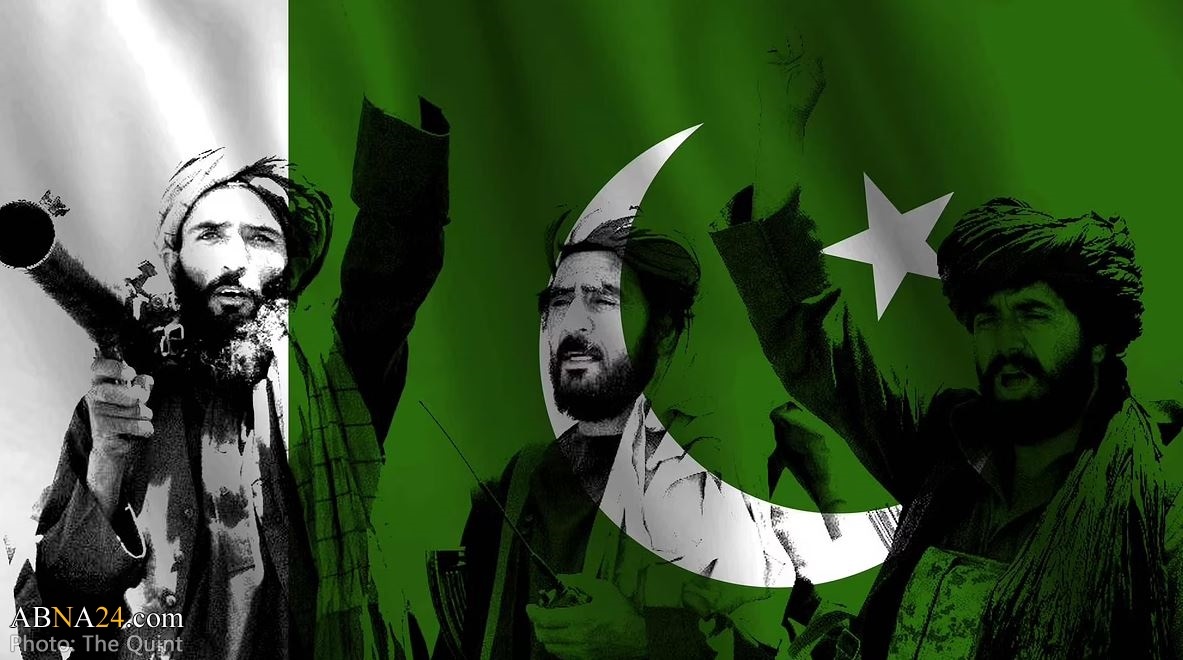AhlulBayt News Agency (ABNA): Until just a few months ago, when the Taliban took full control of Kabul, a few people imagined that there would be a crisis between the Taliban and Pakistan. The Taliban have always been portrayed as a Pakistan-affiliated group pursuing Islamabad goals, but recently border tensions between the group and Islamabad have escalated and even the two sides exchanged fire over the border.
Pakistani government not Islamic!
One of the most outspoken statements against Pakistan came two weeks ago by Zabihullah Mujahid, spokesman and deputy minister of information and culture for the Taliban government.
In a statement, he said that the ruling government in Pakistan was "not Islamic". Mujahid's remarks were one of the Taliban's sharpest verbal attacks on its backer Islamabad, and was, indeed, influenced by differences between the Pakistani government and the Tehreek-e-Taliban Pakistan (TTP), Taliban's Pakistani affiliate.
Mujahideen's remarks came a day after the TTP announced that it would not accept a ceasefire plan proposed by the government. The militant movement has been at war with the Islamabad for decades, and after the Taliban seized the power in Kabul in early August, Islamabad announced that it struck ceasefire deal with the TTP through the Taliban, although differences remain in place.
Sparks to border clashes
Pakistan and Afghanistan have historical differences over the Durand Line. The 2400-kilometer Durand Line is located on the Pakistan-Afghanistan border and makes a long border. In addition to Afghanistan, Pakistan also agreed with Iran a few years ago to fence the common border.
Pakistan claims the fence was installed at a high cost to prevent illegal transportation. The former Afghan government opposed the installation of the fence, arguing that the measure should not be considered until the border disputes are resolved. The Taliban also opposes the border demarcation and has stated that it does not recognize Durand Line.
While Pakistan had high hopes that the issue of its border disputes with Afghanistan would remain silent as the Taliban assumed the power, the Taliban proved reluctant to turn a blind eye. Less than a week ago, a fence set up by the Pakistani army on the Durand Line on the Pakistan-Afghanistan border was cut by Taliban forces.
Also, a few days ago, a video was circulated online showing Taliban special forces cutting the fence installed by Pakistan. In the footage, it was claimed that the fence was installed inside Afghanistan and the forces of the interim government of Afghanistan reacted severely to it. The incident sparked Taliban's border skirmishes with Pakistan. An Afghan journalist, Bilal Sarwari, had tweeted the video. According to the journalist, the commander of the Taliban security forces, known as Dr. Bashir, was the commander of the intelligence forces that led the fence removal operation. The incident took place in Goshta village of Nangarhar province, which borders Mohmand District of Khyber Pakhtunkhwa province northwest of Pakistan.
Exchange of fire along with agreement announcement
Field sources in Afghanistan told Alwaght that the Taliban have been sending some of their military equipment and artillery to the Pakistani border since late Saturday. Pakistan has also raised the issue of demolition of its fences in Nangarhar province with Taliban officials and called for an investigation. In the last round of the rare tensions, the Pakistani army fired dozens of rockets at villages in the Sirkanay District of Kunar province on Friday evening, and field sources said the Taliban responded by targeting Pakistan forces' positions.
A Taliban commander who was also present at the border with Pakistan amid clashes reportedly claimed that the Afghan border extends up to kilometers from the Pakistani capital Islamabad. This statement means that the Taliban does not accept the current Pakistani borderline.
Official sources in the Pakistani government or Taliban leaders have not yet commented on the clash, but a senior Pakistani official said that Pakistan and the Taliban have reached an agreement on resolving the border fence issue through dialogue. The official, who spoke on condition of anonymity because of the sensitivity of the issue, said the Taliban's local intelligence chief had tried to remove the fence and that the move was not approved by the Taliban leadership. According to the Express Tribune newspaper, Pakistan and the Taliban "established high-level contacts" after the incident and agreed to resolve the issue through dialogue.
The newspaper, citing a Pakistani official, continued that the two sides agreed not to allow the situation deteriorate, adding that there are some discrepancy of views on the fencing but the two sides would solve the issue together." The Afghan sides was asked for border fixing before repair of the fence, the report further said, adding that Mullah Yaghoub, the acting defense minister in Taliban interim government, visited the area of tension and instructed the local authorities to prevent similar incidents in the future.
Still, the border conditions are far from stable and it seems that the Taliban, which won its push for power seizure on the strength of Islamabad support, is today at loggerheads with Pakistan on such most basic issue as border.
/129

